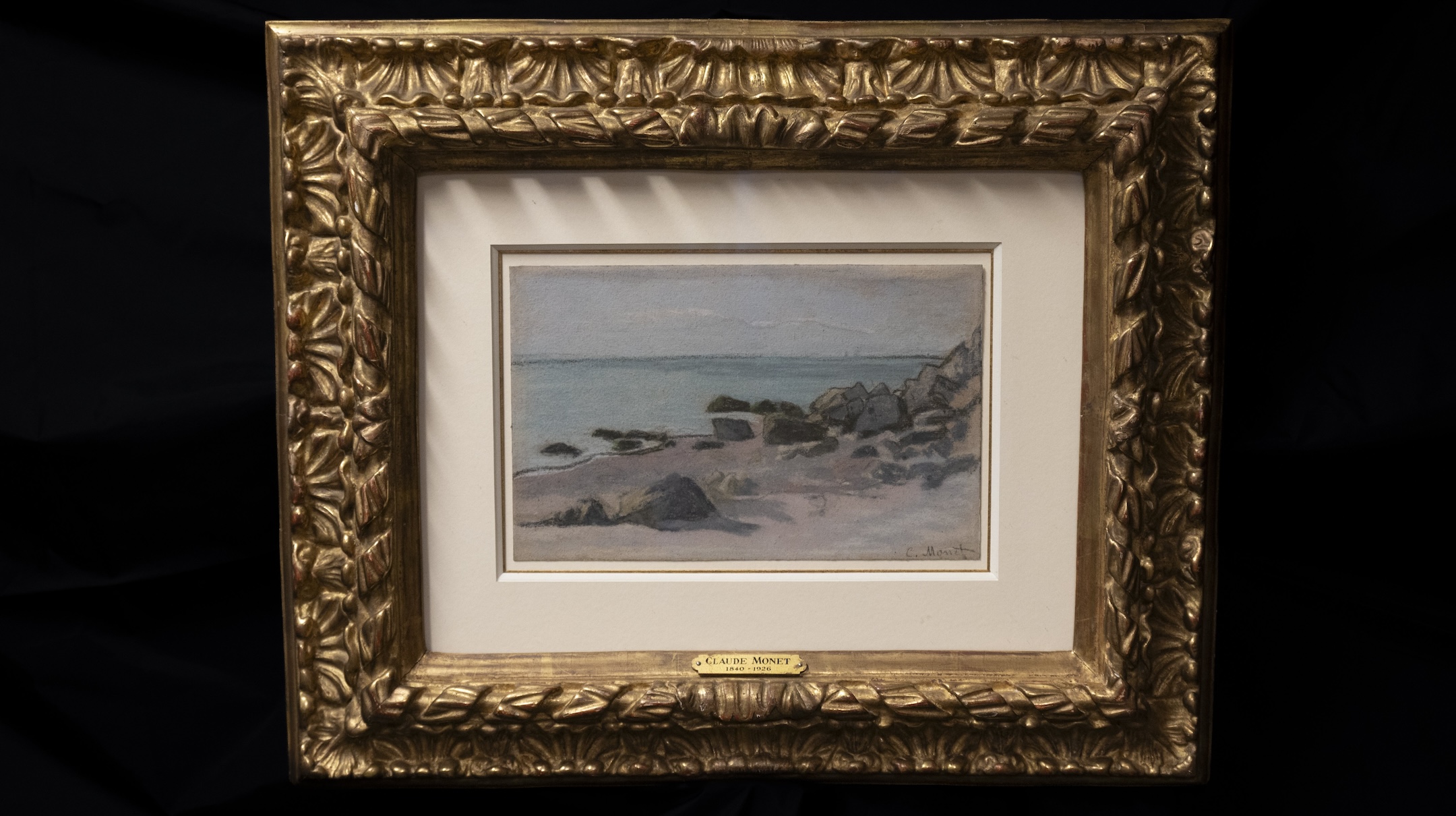Family recovers Monet pastel generations after Nazi looting
An unsuspecting New Orleans couple who bought the artwork in 2019 voluntarily relinquished it after learning of its history

Claude Monet’s pastel on paper, “Bord de Mer,” dated about 1865 and which was stolen from the Parlagi family in 1940 by the Nazis in Austria, is seen after its recovery by the FBI’s Art Crime Team. (FBI).
(JTA) — When Adalbert and Hilda Parlagi fled Vienna in 1938, a month after the Nazi annexation of Austria, they left behind a collection of artwork, which they and their heirs spent decades trying to retrieve.
On Wednesday in New Orleans, FBI agents presented the couple’s grandchildren with one of the looted works: a pastel drawing by French impressionist Claude Monet.
“Our grandfather would have been so happy to find out this Monet was being restituted after all his attempts over the years,” the heirs said in a joint statement. “This is a very moving and exceptional day for us, a day neither of us ever thought would happen.”
The 1865 Monet measures 7 by 11 inches and is titled “Bord de Mer,” which means “Seaside.” It depicts a rocky section of the Normandy coast, where Allied forces landed on D-Day in 1944, beginning their liberation of Nazi-occupied France.
The pastel is one of about 600,000 works of art, along with millions of books and religious items, that were looted by the Nazis during World War II. The FBI’s Art Crime Team, which worked on this case, has helped recover some 20,000 artworks over the years.
Adalbert “Bela” Parlagi was a successful businessman and art collector born in Budapest who moved to Vienna as a young man. He married his wife, Hilda, who was from Prague, and they had two children, Hedwig and Franz. According to the Associated Press, the couple had abandoned their Jewish identity and raised their children as Protestants. However, under Nazi race laws, they were still considered Jewish, and the family fled to the United Kingdom in March 1938, shortly after the Anschluss.
The Parlagis tried to have their belongings, including the Monet and seven other artworks, shipped to them in London, but in 1940, the Gestapo confiscated their property. The artwork was sold at auction, with the proceeds going into the coffers of the Third Reich.
As soon as the war ended, Adalbert Parlagi began a lifelong quest to recover his beloved paintings, a cause bolstered by a series of international declarations against the market in Nazi-looted art. However, he was thwarted by the Viennese auctioneer who had sold off his looted artworks, as the auctioneer claimed to Parlagi that he had no record or recollection of the sale.
Parlagi died in 1981, and his son, Franz, took up the effort until his own death in 2012.
Two years later, the next generation enlisted the help of the Commission for Looted Art in Europe, a London-based NGO, whose team scoured museum archives and online listings for years before making a breakthrough in 2021. The researchers discovered that a New Orleans art dealer had sold the Monet to a local physician and his wife in 2019.
The FBI got involved and soon contacted the unsuspecting couple, Kevin Schlamp and his wife, Bridget Vita, to notify them of the pastel’s history. The couple voluntarily relinquished their ownership rights, according to an FBI press release.
“The Schlamp family’s cooperation was key to the successful resolution of this case, and their integrity in ensuring the pastel’s return is highly commendable,” the release said.
Vita, whose husband died earlier this year, told a New Orleans newspaper, “We lost a painting, but the Jewish community had lost so much more.”
The Parlagi heirs recovered another drawing in March from the collection of an Austrian museum, but they are still searching for six remaining artworks, including a charcoal drawing by Camille Pissarro and a watercolor by Paul Signac.















